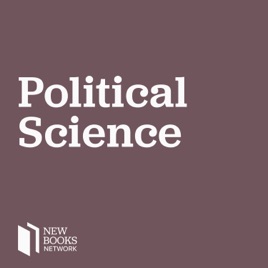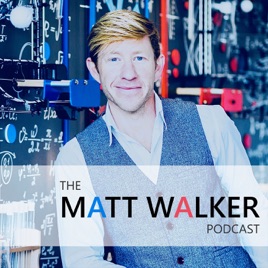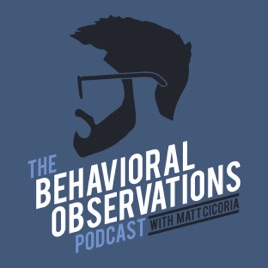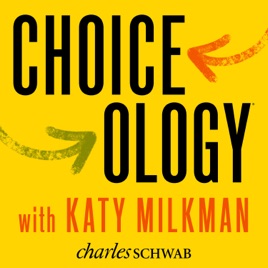
Advertise on podcast: New Books in Political Science
Rating
4.5 from
Country
This podcast has
1044 episodes
Language
Publisher
Explicit
No
Date created
2011/03/10
Average duration
53 min.
Release period
1 days
Description
Interviews with Political Scientists about their New Books Support our show by becoming a premium member! https://newbooksnetwork.supportingcast.fm/political-science
Podcast episodes
Check latest episodes from New Books in Political Science podcast
Calla Hummel, "Why Informal Workers Organize: Contentious Politics, Enforcement, and the State" (Oxford UP, 2022)
2024/02/25
Informal workers make up over two billion workers or about 50 percent of the global workforce, and yet scholarly understandings of informal workers’ political and civil society participation remain limited. In Why Informal Workers Organize? Contentious Politics, Enforcement, and the State (Oxford University Press, 2022), Calla Hummel finds that informal workers organize in nearly every country for which data exists, but to varying degrees. Why do informal workers organize in some places more than others? Hummel finds that informal workers organize where state officials encourage them to. Grounded in robust theory that builds on and advances canon literature on collective action problems, Hummel argues that when officials intervene with incentives in the form of cash, licenses, and access to the bureaucracy, they lower the barriers that keep people from organizing on their own. Once informal workers take these incentives and start organizations, officials can bargain over regulation and enforcement with representatives instead of a mass of individuals. These insights are supported by well-triangulated data, including existing and original surveys, over 150 interviews with informal workers in Bolivia and Brazil, and ethnographic evidence collected from multiple cities. The book challenges assumptions about informal workers, offering an original contribution for scholars of informal economies, enforcement, civil society, and state building, as well as public policy practitioners.
Dhouha Djerbi is a PhD candidate in political science at the Geneva Graduate Institute.
Learn more about your ad choices. Visit megaphone.fm/adchoices
Support our show by becoming a premium member! https://newbooksnetwork.supportingcast.fm/political-science
more
Christopher J. Devine, "I’m Here to Ask for Your Vote: How Presidential Campaign Visits Influence Voters" (Columbia UP, 2023)
2024/02/24
During presidential campaigns, candidates crisscross the country nonstop—visiting swing states, their home turf, and enemy territory. But do all those campaign visits make a difference when Election Day comes? If so, how and under what conditions? Do they mobilise the partisan faithful or persuade undecided voters? What do campaigns try to achieve through campaign visits—and when do they succeed?
I’m Here to Ask for Your Vote: How Presidential Campaign Visits Influence Voters (Columbia University Press, 2023) by Dr. Christopher J. Devine is a comprehensive and compelling examination of the strategy and effectiveness of presidential campaign visits. Dr. Devine uses an original database of presidential and vice-presidential campaign visits from 2008 through 2020 to estimate the effects of visits on vote choice and turnout, both among individual voters and within counties. He finds that campaign visits do not usually influence voting behaviour, but when they do, most often it is by persuading undecided voters—as was the case for John McCain in 2008 and even Donald Trump in 2020. Challenging the recent emphasis on candidates playing to their base, this book suggests that persuasion is still a viable campaign strategy, in which candidate visits may play a major role.
This interview was conducted by Dr. Miranda Melcher whose forthcoming book focuses on post-conflict military integration, understanding treaty negotiation and implementation in civil war contexts, with qualitative analysis of the Angolan and Mozambican civil wars.
Learn more about your ad choices. Visit megaphone.fm/adchoices
Support our show by becoming a premium member! https://newbooksnetwork.supportingcast.fm/political-science
more
Paul Scharre, "Four Battlegrounds: Power in the Age of Artificial Intelligence" (Norton, 2023)
2024/02/24
An award-winning defense expert tells the story of today’s great power rivalry―the struggle to control artificial intelligence.
A new industrial revolution has begun. Like mechanization or electricity before it, artificial intelligence will touch every aspect of our lives―and cause profound disruptions in the balance of global power, especially among the AI superpowers: China, the United States, and Europe. Autonomous weapons expert Paul Scharre takes readers inside the fierce competition to develop and implement this game-changing technology and dominate the future.
Four Battlegrounds: Power in the Age of Artificial Intelligence (Norton, 2023) argues that four key elements define this struggle: data, computing power, talent, and institutions. Data is a vital resource like coal or oil, but it must be collected and refined. Advanced computer chips are the essence of computing power―control over chip supply chains grants leverage over rivals. Talent is about people: which country attracts the best researchers and most advanced technology companies? The fourth “battlefield” is maybe the most critical: the ultimate global leader in AI will have institutions that effectively incorporate AI into their economy, society, and especially their military.
Scharre’s account surges with futuristic technology. He explores the ways AI systems are already discovering new strategies via millions of war-game simulations, developing combat tactics better than any human, tracking billions of people using biometrics, and subtly controlling information with secret algorithms. He visits China’s “National Team” of leading AI companies to show the chilling synergy between China’s government, private sector, and surveillance state. He interviews Pentagon leadership and tours U.S. Defense Department offices in Silicon Valley, revealing deep tensions between the military and tech giants who control data, chips, and talent. Yet he concludes that those tensions, inherent to our democratic system, create resilience and resistance to autocracy in the face of overwhelmingly powerful technology.
Engaging and direct, Four Battlegrounds offers a vivid picture of how AI is transforming warfare, global security, and the future of human freedom―and what it will take for democracies to remain at the forefront of the world order.
Learn more about your ad choices. Visit megaphone.fm/adchoices
Support our show by becoming a premium member! https://newbooksnetwork.supportingcast.fm/political-science
more
The Future of the Chinese Military: A Discussion with James A. Siebens
2024/02/23
For all the talk of China being a peaceful country with no aggressive intentions, it has behaved like most other rising powers – spending lots of money on its military. But what do we know of how that military is used? James A. Siebens is the editor of China’s Use of Armed Coercion: To Win Without Fighting (Routledge, 2023). Listen to him in conversation with Owen Bennett-Jones.
Owen Bennett-Jones is a freelance journalist and writer. A former BBC correspondent and presenter he has been a resident foreign correspondent in Bucharest, Geneva, Islamabad, Hanoi and Beirut. He is recently wrote a history of the Bhutto dynasty which was published by Yale University Press.
Learn more about your ad choices. Visit megaphone.fm/adchoices
Support our show by becoming a premium member! https://newbooksnetwork.supportingcast.fm/political-science
more
Michael Kimmage, "Collisions: The Origins of the War in Ukraine and the New Global Instability" (Oxford UP, 2024)
2024/02/23
One war, three collisions: Russia with Ukraine, Europe, and the US. On the second anniversary of the full-scale invasion, Michael Kimmage analyses the disparate factors that led to war in Collisions: The Origins of the War in Ukraine and the New Global Instability (OUP Press, 2024).
"After a few anomalous years of peace, Europe became in 2022 what it has always been, an epicentre of conflict, the fault line around which the biggest and worst geopolitical earthquakes tend to occur".
A member of the Secretary's Policy Planning Staff at the US State Department where he handled the Ukraine/Russia portfolio from 2014-2016, Michael Kimmage is now a Professor of History at the Catholic University of America in Washington DC.
*The authors' book recommendations are Paris 1919: Six Months That Changed the World by Margaret MacMillan (Random House, 2002) and The Russo-Ukrainian War by Serhii Plokhy (Allen Lane, 2023).
Tim Gwynn Jones is an economic and political-risk analyst at Medley Advisors, who also writes the twenty4two newsletter on Substack and hosts the In The Room podcast series.
Learn more about your ad choices. Visit megaphone.fm/adchoices
Support our show by becoming a premium member! https://newbooksnetwork.supportingcast.fm/political-science
more
Daniel Skinner et al., "The City and the Hospital: The Paradox of Medically Overserved Communities" (U Chicago Press, 2023)
2024/02/21
An enduring paradox of urban public health is that many communities around hospitals are economically distressed and, counterintuitively, medically underserved. In The City and the Hospital two sociologists, Jonathan R. Wynn and Berkeley Franz, and a political scientist, Daniel Skinner, track the multiple causes of this problem and offer policy solutions.
Focusing on three urban hospitals—Connecticut’s Hartford Hospital, the flagship of the Hartford Healthcare system; the Cleveland Clinic, which coordinates with other providers for routine care while its main campus provides specialty care; and the University of Colorado Hospital, a rare example of an urban institution that relocated to a new community—the authors analyze the complicated relationship between a hospital and its neighborhoods. On the one hand, hospitals anchor the communities that surround them, often staying in a neighborhood for decades. Hospitals also craft strategies to engage with the surrounding community, many of those focused on buying locally and hiring staff from their surrounding area. On the other hand, hospitals will often only provide care to the neighboring community through emergency departments, reserving advanced medical care and long-term treatment for those who can pay a premium for it. In addition, the authors show, hospitals frequently buy neighborhood real estate and advocate for development programs that drive gentrification and displacement.
To understand how urban healthcare institutions work with their communities, the authors address power, history, race, and urbanity as much as the workings of the medical industry. These varied initiatives and effects mean that understanding urban hospitals requires seeing them in a new light—not only as medical centers but as complicated urban forces.
Michael O. Johnston, Ph.D. is a Assistant Professor of Sociology at William Penn University. He is the author of The Social Construction of a Cultural Spectacle: Floatzilla (Lexington Books, 2023) and Community Media Representations of Place and Identity at Tug Fest: Reconstructing the Mississippi River (Lexington Books, 2022). His general area of study is about the construction of identity and place. He is currently conducting research for his next project that looks at nightlife and the emotional labor that is performed by bouncers at bars and nightclubs. To learn more about Michael O. Johnston you can go to his website, Google Scholar, Twitter @ProfessorJohnst, or by email at johnstonmo@wmpenn.edu.
Learn more about your ad choices. Visit megaphone.fm/adchoices
Support our show by becoming a premium member! https://newbooksnetwork.supportingcast.fm/political-science
more
Kunal Purohit, "H-Pop: The Secretive World of Hindutva Pop Stars" (HarperCollins, 2023)
2024/02/20
Can a song trigger a murder? Can a poem spark a riot? Can a book divide a people? Away from the gaze of mainstream urban media, across India's dusty, sleepy towns, a brand of popular culture is quietly seizing the imagination of millions, on the internet and off it. From catchy songs with acerbic lyrics to poetry recited in kavi sammelans to social media influencers shaping opinions with their brand of 'breaking news' to books rescripting historical events, 'Hindutva Pop' or H-Pop is steadily creating societal acceptability for Hindutva's core beliefs.
By cleverly inserting Hindutva into popular culture, H-Pop normalizes Islamophobia, demonizes minorities and vilifies its critics each day, without ever making headlines. What makes H-Pop so popular? Who are its stars and its audience? Who is pouring in the money, the effort and the resources to produce and broadcast it? What is its impact on the BJP and Prime Minister Modi's popularity? And what kind of an India is it trying to create? These are some of the questions that award-winning independent journalist Kunal Purohit explores in this riveting investigative book as he travels through India, profiling some of H-Pop's most prolific and popular creators--its stars and celebrities. He interrogates whether the creators are driven by ideology or commerce, and what motivates the audience to consume their daily dose of bigotry. In H-Pop: The Secretive World of Hindutva Pop Stars (HarperCollins, 2023), Purohit uncovers the frightening face of a New India--one that is united by hate, divided by art.
Kunal Purohit has been a journalist for nearly two decades, writing on issues of development, politics, inequality, gender and the intersections between them. He is an independent journalist and has, in the recent past, reported closely on hate crimes and the rise of Hindu nationalism across the country. He has worked in the newsrooms of Hindustan Times and The Free Press Journal in Mumbai. He is an alumnus of the School of Oriental and African Studies, University of London, from where, as a Felix Scholar, he earned an MSc in Development Studies with distinction in 2017. Kunal received the Ramnath Goenka Award for Excellence in Civic Journalism in 2012, the Statesman Award for Rural Reporting in 2014 and the UNFPA-Laadli Media Award for Gender Sensitive Reporting in 2014 and 2019. He has also received various fellowships and journalism grants. His work can be found in Al Jazeera, ProPublica, The Times of India, Foreign Policy, Hindustan Times, South China Morning Post, Deutsche Welle and The Wire, among others.
Learn more about your ad choices. Visit megaphone.fm/adchoices
Support our show by becoming a premium member! https://newbooksnetwork.supportingcast.fm/political-science
more
Robert Louis Wilken, "Liberty in the Things of God: The Christian Origins of Religious Freedom" (Yale UP, 2019)
2024/02/20
Robert Louis Wilken, the William R. Kenan Professor Emeritus of the History of Christianity at the University of Virginia, has written an intellectual history of the ideas surrounding freedom of religion. Liberty in the Things of God: The Christian Origins of Religious Freedom (Yale University Press, 2019) offers a revisionist history of how the ideas of freedom of conscience and freedom of religion originated in the writings of the Christian fathers of the early Church, such as Tertullian and Lactantius, during the period when Christians were a persecuted sect of the Roman Empire. Wilken argues that it was not the political theorists of the Enlightenment who invented religious freedom in response to the wars of the Reformation, but rather the participants of the Reformation itself, including both Protestant and Catholic thinkers, who recovered ideas from the Roman-era Church fathers and used them to develop arguments about religious liberty for both individuals and faith communities. Wilken demonstrates that the concerns about whether faith could ever be enforced by the sword were present from the beginnings of Christianity. Wilken’s book helps inform our understanding of the origins of religious liberty, which is a concept of great import in contemporary debates about the meaning of the First Amendment’s Free Exercise and Establishment Clauses.
Learn more about your ad choices. Visit megaphone.fm/adchoices
Support our show by becoming a premium member! https://newbooksnetwork.supportingcast.fm/political-science
more
Why is Right-Wing Extremism so Widespread in Italy?
2024/02/19
In this episode of International Horizons, RBI director John Torpey interviews Marla Stone, a historian of Italian fascism at Occidental College, on the resurgence of the far right in Italy. The conversation delves into the origins of this resurgence and how Italy, a fairly homogeneous society, became a recipient of hundreds of thousand migrants, altering the perceptions of threat on Italian citizens that have been successfully instrumentalized by political movements to bring Giorgia Meloni to power. Prof. Stone also discusses the waning of the Italian left, but sees an optimistic future as an increasing number of Italians are promoting diversity.
Learn more about your ad choices. Visit megaphone.fm/adchoices
Support our show by becoming a premium member! https://newbooksnetwork.supportingcast.fm/political-science
more
Vytautas Jankauskas and Steffen Eckhard, "The Politics of Evaluation in International Organizations" (Oxford UP, 2023)
2024/02/19
Evaluation has become a key tool in assessing the performance of international organisations, in fostering learning, and in demonstrating accountability. Within the United Nations (UN) system, thousands of evaluators and consultants produce hundreds of evaluation reports worth millions of dollars every year. But does evaluation really deliver on its promise of objective evidence and functional use?
By unravelling the internal machinery of evaluation systems in international organisations, The Politics of Evaluation in International Organisations (Oxford University Press, 2023) challenges the conventional understanding of evaluation as a value-free activity. Dr. Vytautas Jankauskas and Dr. Steffen Eckhard show how a seemingly neutral technocratic tool can serve as an instrument for power in global governance; they demonstrate and explain how deeply politics are entrenched in the interests of evaluation stakeholders, in the control and design of IO evaluation systems, and to a lesser extent also in the content of evaluation reports. The analysis draws on 120 research interviews with evaluators, member state representatives, and IO secretariat officials as well as on textual analysis of over 200 evaluation reports. The investigation covers 21 UN system organisations, including detailed case studies of the ILO, IMF, UNDP, UN WOMEN, IOM, UNHCR, FAO, WHO, and UNESCO.
Shedding light on the (in-)effectiveness of evidence-based policymaking, the authors propose possible ways of better reconciling the observed evaluation politics with the need to gather reliable evidence that is used to improve the functioning of the United Nations. The answer to evaluation politics is not to abandon evaluation or isolate it from the stakeholders but to acknowledge surrounding political interests and design evaluation systems accordingly.
This interview was conducted by Dr. Miranda Melcher whose forthcoming book focuses on post-conflict military integration, understanding treaty negotiation and implementation in civil war contexts, with qualitative analysis of the Angolan and Mozambican civil wars.
Learn more about your ad choices. Visit megaphone.fm/adchoices
Support our show by becoming a premium member! https://newbooksnetwork.supportingcast.fm/political-science
more
Can We Ever Unthink Linguistic Nationalism?
2024/02/19
Ingrid Piller speaks with Aneta Pavlenko about multilingualism through the ages.
We start from the question whether the world today is more multilingual than it was ever before. Spoiler alert: we quickly conclude that no, it is not.
One of the reasons why the world may seem more multilingual today than in the past lies in the European nationalist project, which culminated in the “population exchanges” of the 20th century – the great “unmixing of peoples”, as Lord Curzon called it.
As a result, languages became associated with nations and this linguistic nationalism continues to guide views of language today. Can linguistic nationalism ever be unthought?
Maybe because languages are now so deeply intertwined with nationalist projects, we have become much more emotional about language and languages than people may have been in the past. This is true even of academic research, where there can be significant pressure to bring our emotions into our research, too.
How to deal with such pressures is another thread that runs through our conversation. We reflect on our own academic careers and what lessons they may or may not hold for early career researchers today.
First published on October 04, 2021.
“Chats in Linguistic Diversity” is a podcast about linguistic diversity in social life brought to you by the Language on the Move team. We explore multilingualism, language learning, and intercultural communication in the contexts of globalization and migration.
Learn more about your ad choices. Visit megaphone.fm/adchoices
Support our show by becoming a premium member! https://newbooksnetwork.supportingcast.fm/political-science
more
Jane Burbank and Frederick Cooper, "Post-Imperial Possibilities: Eurasia, Eurafrica, Afroasia" (Princeton UP, 2023)
2024/02/18
How can territory and peoples be organized? After the dissolution of empires, was the nation-state the only way to unite people politically, culturally, and economically?
In Post-Imperial Possibilities: Eurasia, Eurafrica, Afroasia (Princeton UP, 2023), historians Jane Burbank and Frederick Cooper examine three large-scale, transcontinental projects aimed at bringing together peoples of different regions to mitigate imperial legacies of inequality. Eurasia, Eurafrica, and Afroasia—in theory if not in practice—offered alternative routes out of empire. The theory of Eurasianism was developed after the collapse of imperial Russia by exiled intellectuals alienated by both Western imperialism and communism. Eurafrica began as a design for collaborative European exploitation of Africa but was transformed in the 1940s and 1950s into a project to include France’s African territories in plans for European integration. The Afroasian movement wanted to replace the vertical relationship of colonizer and colonized with a horizontal relationship among former colonial territories that could challenge both the communist and capitalist worlds. Both Eurafrica and Afroasia floundered, victims of old and new vested interests. But Eurasia revived in the 1990s, when Russian intellectuals turned the theory’s attack on Western hegemony into a recipe for the restoration of Russian imperial power. While both the system of purportedly sovereign states and the concentrated might of large economic and political institutions continue to frustrate projects to overcome inequities in welfare and power, Burbank and Cooper‘s study of political imagination explores wide-ranging concepts of social affiliation and obligation that emerged after empire and the reasons for their unlike destinies.
This is Jane Burbank and Frederick Cooper second major scholarly collaboration. They previously co-authored Empires in World History: Power and the Politics of Difference (Princeton University Press, 2010).
Frederick Cooper is Professor Emeritus of History at New York University. His research has focused on 20th-century Africa, empires, colonization and decolonization, and citizenship. Among his books are Colonialism in Question: Theory, Knowledge, History (2005); Citizenship between Empire and Nation: Remaking France and French Africa, 1945-1960 (2014); Africa in the World: Capitalism, Empire, Nation-State (2014); Citizenship, Inequality, and Difference: Historical Perspectives (2018); and Africa since 1940: The Past of the Present (2nd ed., 2019).
Jane Burbank is Professor Emerita, New York University. Her areas of research are Russian political culture, law, and empire. Her works include Intelligentsia and Revolution: Russian Views of Bolshevism, 1917-1922 (1986); Russian Peasants Go to Court: Legal Culture in the Countryside, 1905-1917 (2004); Imperial Russia: New Histories for the Empire, edited with David L. Ransel. Bloomington: Indiana University Press, 1998); Russian Empire: Space, People, Power, 1700-1930, edited with Mark von Hagen and Anatolyi Remnev (2007).
Learn more about your ad choices. Visit megaphone.fm/adchoices
Support our show by becoming a premium member! https://newbooksnetwork.supportingcast.fm/political-science
more
Podcast reviews
Read New Books in Political Science podcast reviews
A Syrian NoOne
2020/07/18
Syrian
Big thank you Political Science.
To Blumenthal’s critics:
Keep your dirty petrodollars, your crazed Takfiri radical militants from China, Chechnya, ...
more
Concerned Political Scientist
2020/10/28
John Yoo?
No.
Galacto Overtron
2019/11/14
Engaging and well-paced
I really enjoy New Books in Political Science, the hosts make sure that their discussions are free of jargon, and explain the ideas in these cutting-e...
more
saradems
2019/02/27
Useful and Interesting
This is a great way to stay up on new books in the field! I also love using these podcasts with students, to expose them to new ideas when there isn’t...
more
Melbrooksjr
2018/07/11
Your Lit Review Has Arrived
Love this podcast. I listen during my mega commute to campus. I've learned a lot about new books coming out in the field.
It's a wonderful public serv...
more
Cat lover in NYC
2015/12/15
Excellent
Enjoyed that podcast a bunch.
an Archy
2017/05/15
Fascinating but flawed
The New Books podcasts do me a huge service by keeping me up to date on my field (American elections and public opinion) while introducing me to work ...
more
Knel5
2016/03/21
Please buy a new microphone
I will listen to all of your podcasts as the content is superb, but please spend $40 on a microphone made this century!
Podcast fan 11219
2015/11/09
Learned a lot
I always learn a lot from these podcasts
Memwall
2015/10/02
Interesting and Enjoyable
This podcast helps me stay up to speed on the latest publications in my field. It is relevant, interesting and enjoyable.
Podcast sponsorship advertising
Start advertising on New Books in Political Science & sponsor relevant audience podcasts
You may also like these social sciences Podcasts

4.9
782
70
The Matt Walker Podcast
Dr. Matt Walker

4.9
99
55
The TBRI Podcast
Karyn Purvis Institute of Child Development

4.6
681
470
UFO Chronicles Podcast
Nik Hunter

4.7
562
457
ABA Inside Track
Robert Parry-Cruwys

4.9
1238
162
Behavior Bitches
Study Notes ABA

4.9
433
51
The Numberphile Podcast
Brady Haran

4.8
595
256
The Behavioral Observations Podcast with Matt Cicoria
Matt Cicoria

4.8
1329
82
Choiceology with Katy Milkman
Charles Schwab

4.5
365
389
Dangerous World Podcast
Ryan Dean

4.7
164
369
The Brainy Business | Understanding the Psychology of Why People Buy | Behavioral Economics
Melina Palmer



